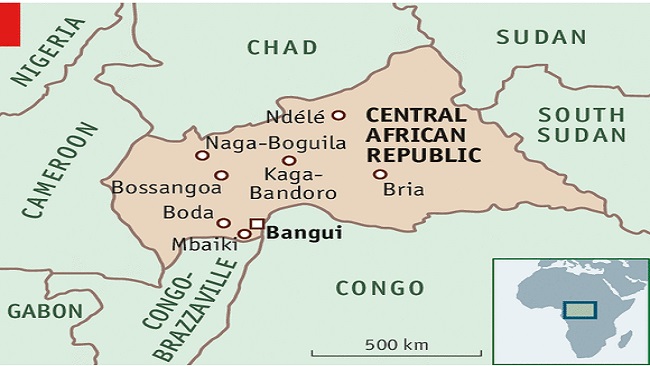Central African Republic govt. signs peace deal with armed groups
The government of the Central African Republic and 14 armed groups on Tuesday inked a new peace accord seeking to end years-long fighting that has left thousands of people dead. The accord was initialed by President Faustin Archange Touadera for the CAR government and representatives of militias which control most of the chronically-troubled country.
It will be formally signed in the CAR capital of Bangui “in the coming days,” Touadera’s office said, without announcing a date. “The Khartoum Agreement opens the door for peace to return to our homeland,” Touadera declared at the ceremony. “It is now time to open a new page for Central Africa. Let’s go together to Bangui to build our country together.”
The agreement, brokered by the African Union after 18 months of exploratory work and sponsored by the UN, is the eighth attempt in almost six years to forge peace in a country that is a byword for turmoil and poverty.
Thousands of people have been killed and a quarter of the population of 4.5 million have fled their homes. The UN says unrest has driven so many people from their farms that hundreds of thousands are at risk of famine.
Herbert Gontran Djono Ahaba, speaking on behalf of the armed groups, said: “The difficult time starts now, and that is implementing the Khartoum Agreement… This agreement is crucial for peace.” Sudanese President Omar al-Bashir said his country was delighted to have hosted the talks and vowed to “continue to be a partner” in peace efforts.
After the agreement was initialled, representatives of the armed groups shook hands with Touadera and Bashir. The text of the agreement was not immediately made public, and there was no word on what compromises may have been needed to achieve it.
“The contents will be made public after the signature,” the head of the CAR government delegation, Firmin Ngrebada, said. Past stumbling blocks in peace negotiations have included rebel demands for an amnesty, something that the CAR government, under pressure from Western allies, has refused.
After the deal was announced on Saturday, Aboubakar Sidik, spokesman for one of the main armed factions, the Popular Front for the Rebirth of Central African Republic (FPRC) said “a consensus has been reached on sticking points which were an amnesty and an inclusive government.”
(Source: AFP)





